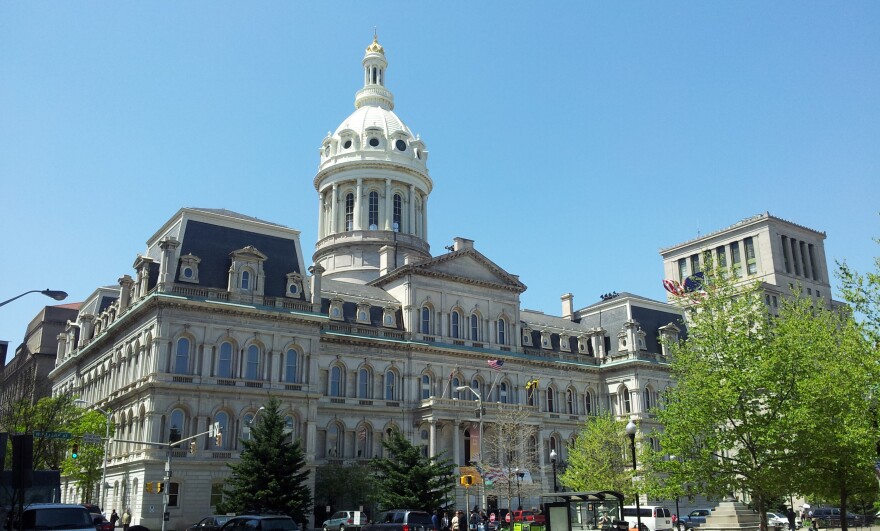Dozens of Baltimore residents spoke against a proposed police budget increase and a development in one neighborhood during the Baltimore City Council’s Taxpayer’s Night at City Hall Thursday.
Much as during the Board of Estimates’ taxpayer night last month, residents spent the better part of two hours arguing that some of the more than $560 million Mayor Brandon Scott has proposed for the Baltimore Police Department for fiscal year 2023 could be put to better use.
Dr. Zackary Berger, a primary care physician who lives in Charles Village and a member of Jews United for Justice, said he worries about the effects of an increased police budget.
“The police are a violent instrument of control and are not a necessary or sufficient instrument of justice or equity,” he argued. “It is a great disappointment that my vulnerable patients will be put at additional risk of interaction with the police if this budget has passed.”
Others, such as Jayla Scott, a Charles Village resident and community health advocate at the Bayview hospital, presented a specific list of demands that was created by the group Organizing Black.
The demands listed on the group’s website include cutting $100 million from BPD’s budget; investing $30 million in a public safety trust fund to be governed through a participatory budgeting process; investing another $70 million in Black communities through allocations to “support quality, affordable housing, high-quality public education, universal healthcare, jobs, a universal basic income, and community programs,” and not sending police on calls involving mental health crises, sex work, homelessness, and crimes of need.
Others complained about a mixed-use development project in the West Baltimore neighborhood of Poppleton that has been ongoing for more than a decade, and which some residents say has displaced longtime homeowners.
Sonia Eaddy, of the Poppleton Neighborhood Association, said the city’s action in her neighborhood – which was purportedly meant to resolve issues caused by decades of redlining – has made residents instead feel more uncomfortable and even scared of where they live.
“You have removed all these legacy homeowners from our neighborhood,” an impassioned Eaddy said. “You tore down the houses and left blight, more blight than y’all say why you need[ed] to come in with this urban renewal plan from the beginning.”
Nicole King, a Seton Hill resident and an American Studies Professor at the University of Maryland Baltimore County revealed some of her findings while working with families in Poppleton during the last few years.
“Between 2004 and 2012 the city spent over $12 million relocating residents and tearing down properties in Poppleton while nothing was built by the developers,” King said.
Near the end of the session, many testified over a Zoom link.
Someone who identified themself as Babatunde, a teacher, artist, and resident for decades in the city questioned the point of taxpayer night if Mayor Scott wasn’t there
“Year after year we attend these meetings. And city residents come here and tell you alternatives to policing,” Babatunde said. “As many have noted this meeting, it begs the question, how can it not be entirely performative because the mayor who has proposed his budget is not even here.”
Earlier Thursday, District 3 Councilman Ryan Dorsey announced on Twitter he would not attend Taxpayer’s Night saying, “I cannot in good conscience participate again believing it misleads people into believing their testimony will make a difference.”
Dorsey did not respond to WYPR’s requests for comment.
At the event’s conclusion, City Council President Nick Mosby said the Council will work to make the budget process more transparent to residents.



